Leads generated on TikTok are directed to Kylas CRM. However, there’s no process for assigning them to particular TikTok ads.
When a lead becomes a customer, you lose the ability to trace them to any specific ad on TikTok.
The lack of ad tracking leaves you uncertain about TikTok’s effectiveness. This means running various ads without knowing which convert leads into customers.
Thankfully, a simple solution lets you trace every lead to the TikTok campaign, ad group, and ad that generated it.
Let’s walk through each step and push forward!
How to capture TikTok ads in Kylas CRM
Step 1: Add Leadsources in the head tag of your website

Leadsources is a simple tracking tool for lead sources. After it’s installed on your site, it logs up to 7 pieces of data for every lead.
Sign up to Leadsources.io – it’s free.
Insert the Leadsources tracking code into the head tag of your website – follow this guide.
Step 2: Add the UTM parameters to your TikTok ads

Add UTM parameters, including campaign, ad group, and ad, to your URL to keep track of TikTok ads data.
You can implement these UTM parameters:
- UTM_medium=paidsocial
- UTM_source=tiktok
- UTM_campaign=campaign-name
- UTM_term=ad-group-name
- UTM_content=ad-name
The completed version of your URL should appear like this:
https://www.yoursite.com/?UTM_medium=paidsocial&UTM_source=tiktok&UTM_campaign=campaign-name&UTM_term=ad-group-name&UTM_content=ad-nameEven when UTM parameters are missing, Leadsources tracks all relevant data points like channel, landing page, and subfolder, ensuring full tracking for every lead.
Step 3: Add the hidden fields in your form
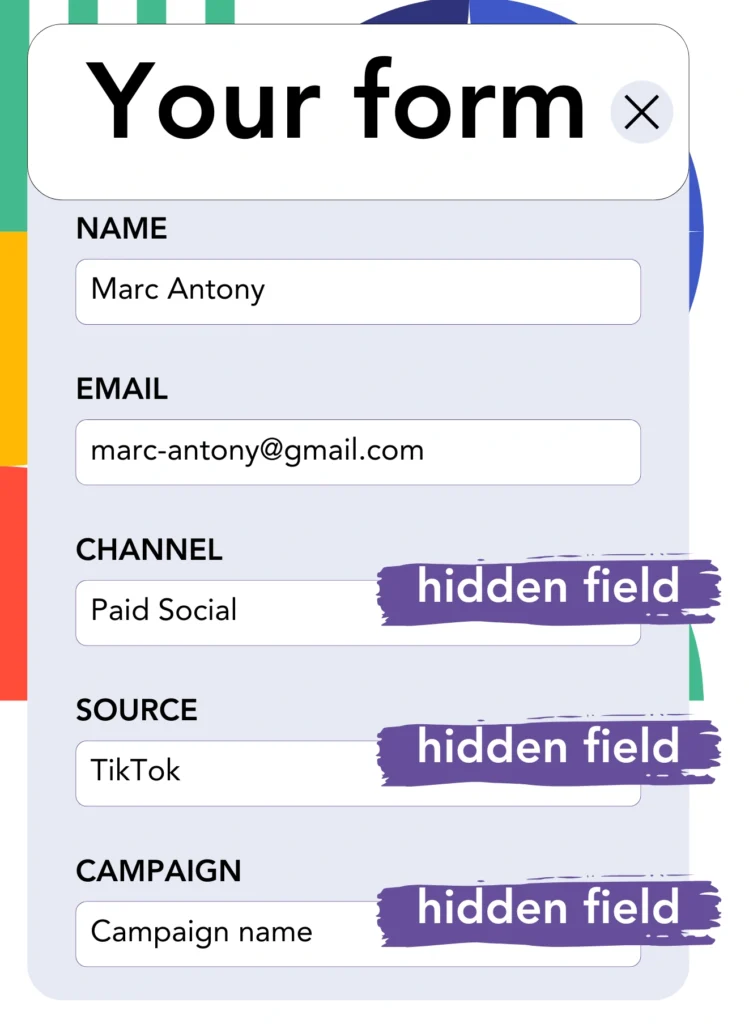
Leadsources stores and captures lead source data directly in your form’s hidden fields.
When a lead completes your form, Leadsources confirms that the hidden fields contain TikTok ads information.
For comprehensive steps on incorporating hidden fields into your form, consult this guide.
Step 4: Capture the TikTok ads data in Kylas CRM
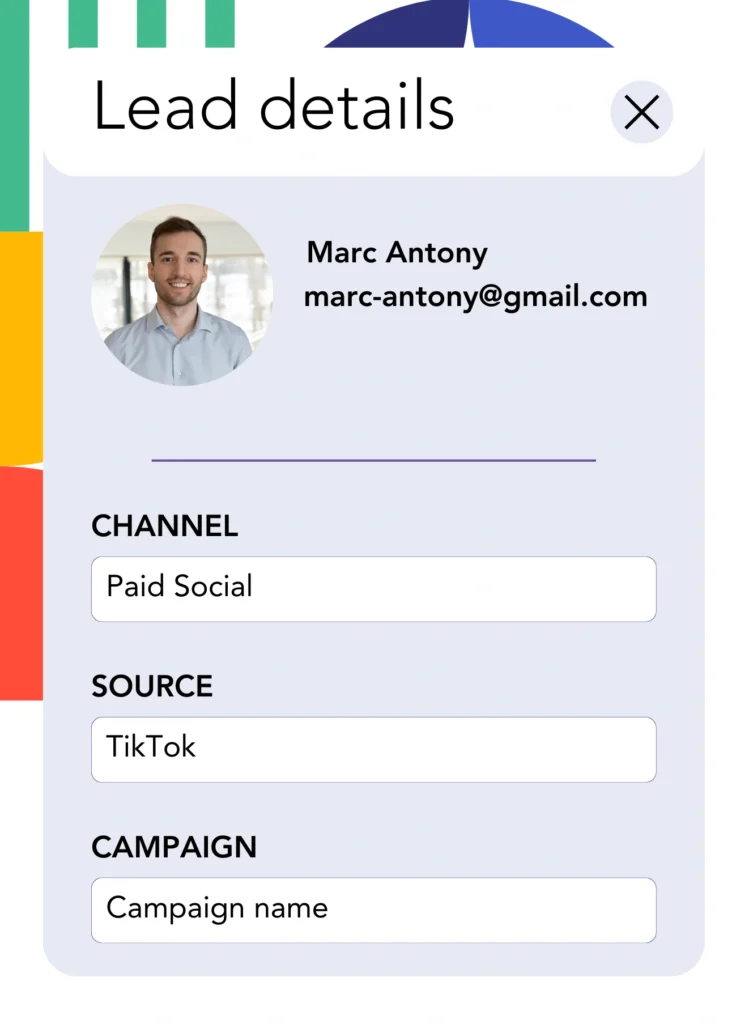
When users engage with your advertisements and navigate to your site, Leadsources tracks the TikTok ads details: campaign, ad group, and ad.
With Leadsources, TikTok ads data is automatically entered into the hidden fields of your form.
Upon completing the form, you can easily direct TikTok ads data and your leads to Kylas CRM by integrating your form with Kylas CRM.
How does Leadsources work?
Each time a visitor comes to your website, Leadsources records the TikTok ads details.
The TikTok ads information is stored in the hidden fields of your form. When the form is submitted, this data is sent to Kylas CRM with the lead details (name, email, etc.).
For each visitor, the following information is tracked by Leadsources:
- Channel
- Source
- Campaign
- Content
- Term
- Landing page
- Landing page subfolder
Leadsources is capable of collecting lead source data through the referrer, even when UTM parameters are not available.
In certain scenarios, it is not advisable to implement UTM parameters, particularly for traffic sourced organically:
- Google Search
- Instagram bio link
- Social media posts
- Etc.
In these instances, most lead source tracking tools struggle to identify lead sources because they are reliant solely on UTM parameters. Nevertheless, Leadsources captures specific lead source information, regardless of UTM parameters:
- Channel
- Source
- Landing page
- Landing page subfolder
Consequently, Leadsources delivers detailed lead data tracking across various channels, making it different from many other lead tracking tools:
- Organic Search
- Paid Search
- Organic Social
- Paid Social
- Referral
- Affiliate
- Display Advertising
- Direct Traffic
Furthermore, Leadsources automatically categorizes your traffic by channel, ensuring a clear dataset in return.
In conclusion, Leadsources acts as a reliable and efficient solution for aggregating comprehensive lead source data from various channels into a single centralized location.
Performance reports: Lead, sales, and revenue by source
Monitoring on TikTok ads data in Kylas CRM allows you to generate various performance reports, including:
- Leads, sales, and revenue by channel
- Leads, sales, and revenue by source
- Leads, sales, and revenue by campaign (aka. Tiktok campaign)
- Leads, sales, and revenue by term (aka. Tiktok ad group)
- Leads, sales, and revenue by content (aka. TikTok ad)
- Leads, sales, and revenue by landing page
- Leads, sales, and revenue by landing page subfolder
As a result, this allows you to revise your TikTok budget based on the campaign, ad group, and ad that facilitate leads, sales, and revenue.
Let’s highlight the different lead performance reports that can be compiled using this information.
1. Lead source reports
Generate performance reports that analyze the leads generated from:
- Channel
- Source
- Campaign
- Term (aka. TikTok ad group)
- Content (aka. TikTok ad)
- Landing page
- Landing page subfolder
Example #1: Leads by channel
This report facilitates the identification of the channel that drives the most leads.
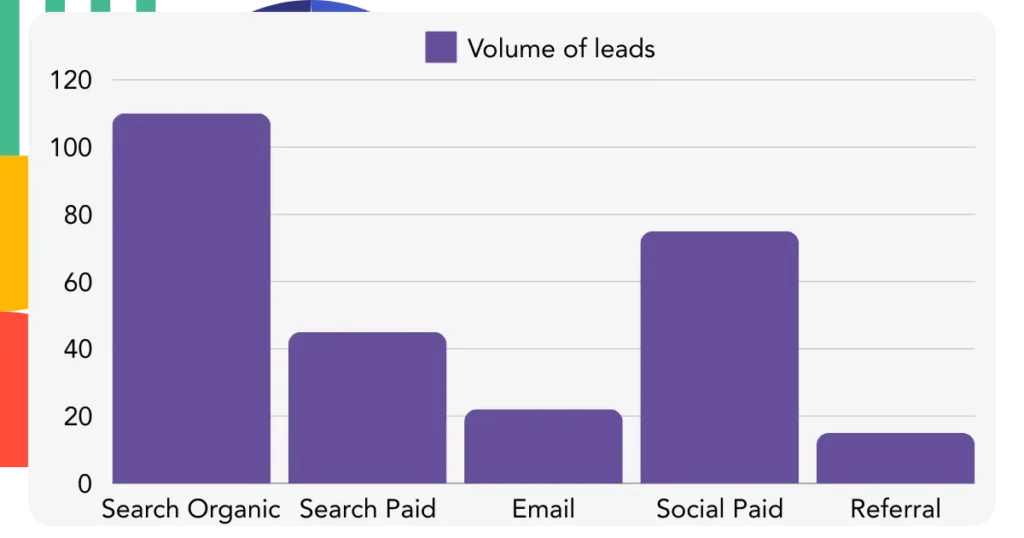
Example #2: Leads by TikTok campaign
You can now focus on a particular lead source (such as TikTok) and quantify the leads from each of its campaigns.
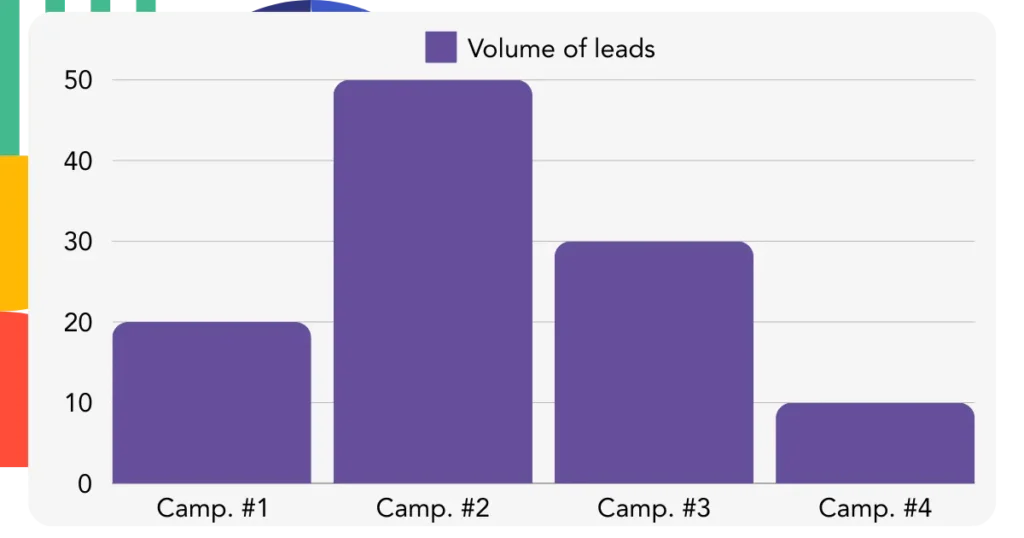
Example #3: Leads by TikTok ad
Once you identify the TikTok campaign that produces the greatest number of leads, you can dive into the ad group or ad that aids in their generation.
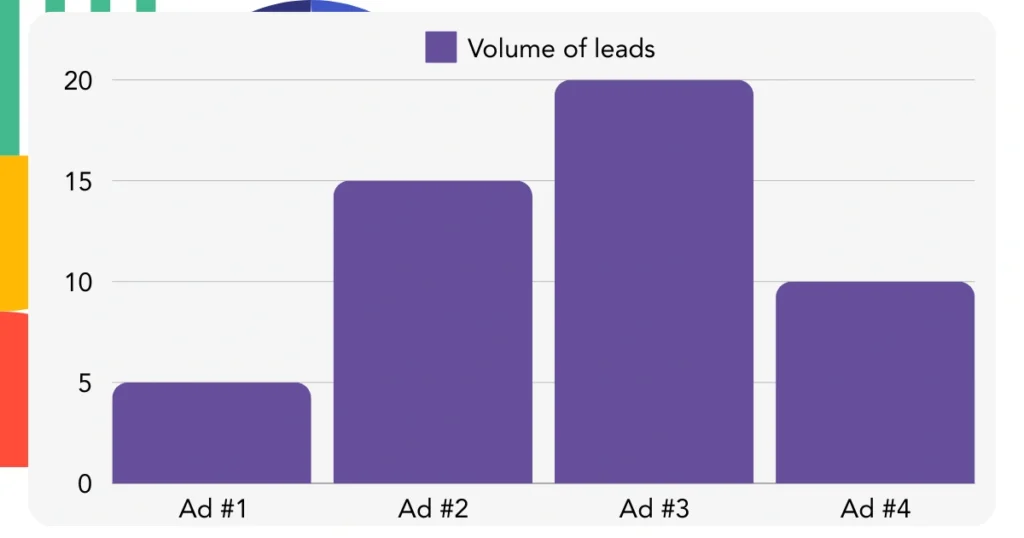
2. Sales and revenue source reports
We now understand the TikTok campaign, ad group, and ad that drive our leads. However, do these leads ultimately result in increased sales and revenue?
It’s crucial to find out which leads evolve into customers. By associating your leads with a CRM such as Kylas CRM, you can track the sales and revenue resulting from different channels, sources, TikTok campaigns, ad groups, ads, landing pages, and beyond.
This allows you to pivot your TikTok ads strategy, emphasizing the channels, sources, campaigns, ad groups, and ads that generate optimal sales and revenue.
This provides the means to produce a variety of sales and revenue reports, such as:
- Sales and revenue by source
- Sales and revenue by campaign
- Sales and revenue by term (aka. TikTok ad group)
- Sales and revenue by content (aka. TikTok ad)
- Sales and revenue by landing page
- Sales and revenue by landing page subfolder
To clarify this point, let us highlight the following example:
| Channels | Search Paid | Social Paid |
| Leads | 50 | 75 |
| Sales | 5 | 6 |
| Average order value | $150 | $100 |
| Revenue | $750 | $600 |
After ads launched on Google and TikTok, the early “Leads by Channel” report revealed that Social Paid ads on TikTok generated leads more effectively than Search Paid ads did.
Yet, upon analyzing the sales and revenue data from your CRM export, you discovered that the Search Paid channel resulted in higher revenue with a smaller number of leads compared to the Social Paid channel. As a result, you chose to allocate additional budget to the Search Paid channel.
LeadSources tracks the source of each lead in Kylas CRM, whether they come from ads, organic search, social, email, etc. and syncs that data with each submission. See the full breakdown on the lead source in Kylas CRM page.

